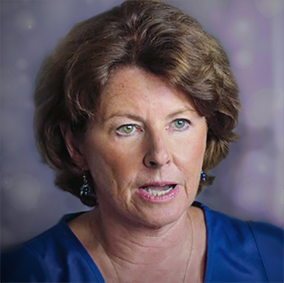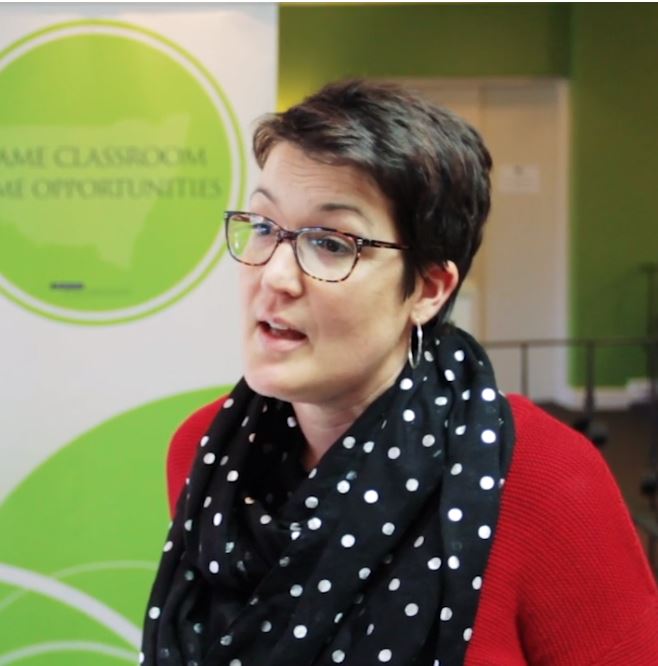ACCESS TALKS: WHAT IS INCLUSION
Perspectives: The professor, the pioneer and the politician
Authentic inclusive education is a social responsibility for us all. Professor Roger Slee, Jody Carr and The Hon. Rob Stokes (NSW Minister for Education) share their thoughts and insights regarding authentic inclusion, framing the fundamentals of successful and sustainable systemic change and the moral impetus required to create an inclusive education system.
This transcript has been corrected and edited slightly for clarity.
Roger Slee
In thinking about inclusive education, what is inclusive education?
I take as my touch point, education for all and when I talk about all, I don’t have caveats for that. I’m not saying all except for … All means all.
First principle; all children can learn and be taught.
Second principle; all children have a right to be enrolled in their local school.
All children have the right.
Inclusive education is not the bolting together of regular and special education in the hope that that will then produce ‘inclusive schooling’. Both institutions [special education and schools] are inventions of a long, long time ago. They were invented to do specific tasks and the world has changed around them. At one stage, special education was certainly a radical intervention to ensure that children who weren’t receiving access to school were able to get an education. The problem isn’t simply special education. The problem is the relationship between the two. So, I start to think in terms of ‘special and regular education’ as irregular education.
What we’re actually looking for is school reform at large. How do we make new, different schools that are able to take all-comers?
I’m not as optimistic about large school systems at the moment as I am about ground-up change from the local school where parents working with teachers lead change. What I’m talking about is not the fortification of special and regular education, but a new educational imagination.
What do schools in the 21st century need to look like? What do teachers need to be able to need to know, think, and be able to do? How will they enlist parents in order to teach all children as is our legal responsibility and promise?
So, I’m arguing for school reform rather than the merging of special with regular, rather than the creation of the inclusion programme at the back of the school in a separate room. It’s a very different entity we’re talking about. I want us to move into the realm of the heart and the head to think about education and what a good education looks like.
Inclusive education is also an invitation to ask a big question, what kind of world do we want to live in? Inclusion doesn’t mean absorption. Absorption doesn’t mean assimilation. Inclusion means representation; access. Who’s in? who’s out? how come? and what are we going to do about it? and that really is the charter for inclusive education. It’s not simply about what others do. It’s about ourselves. When we look at ourselves, what is it about what we think, do, and say that we need to change as well?
Jody Carr
Here’s some things I know about inclusive education.
Segregation and congregation based on disability labels equals abuse more times than not. Always has been and always will be. The right to education is the right to an inclusive education, and it’s possible. When inclusion doesn’t work, it isn’t inclusion. Remember that. When someone says, “Inclusion doesn’t work in our school.” Then what they’re doing is not inclusion because when inclusion is properly supported, understood and resourced, it works and it is the best approach.
When we learn together in classrooms we learn to live together in society.
Dynamic inclusive education shouldn’t be simply giving a ‘choice’ for parents or for only the few who can make it through the barriers. Governments often say we need to give parents choice, to have segregated options but we know segregation harms people with disabilities. History tells us, current present day tells us this. We know though, when it works well it feels like hitting a strike in the bowling lane. When it doesn’t work, as I said, it’s not inclusion. Inclusion properly designed, understood and supported is where you have both equality and quality, and you can have both.
The Hon. Rob Stokers NSW Minister for Education
I had the wonderful opportunity over the weekend to attend a community paddling event in my community at Pittwater–a beautiful day for it–and this event was a race around Scotland Island in support of a local charity that does some great work for children with a disability.
This group has worked in my community for many, many years and has a lot of support and what I really observed at the event was there were different categories of entrants participating in the race. There were elite athletes, there were people with a whole range of different crafts and there were a lot of young people with a disability who were also participating. Everyone was participating together, everyone was included in this particular event, there was recognition of the different capacities of the different people in terms of the elite athletes all the way through to people like me–I really didn’t know what I was doing–but we all felt included. We all felt involved, we all felt known and we all felt special and part of this event.
So, I suppose in one way that provides a metaphor of what inclusivity in every part of our society should all be about; which is about valuing everyone, which is about acknowledging there is difference in society and there will always be difference in society, creating pathways to ensure that everyone is included, that everyone is valued and that everyone is treated with equality and with respect.
Last updated August 21, 2018
ALSO IN THIS SECTION:
MORE ACCESS TALKS:
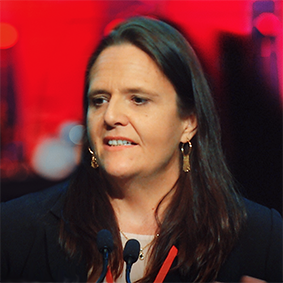
WHY INCLUDE
High quality education & supports enable all students to acquire success in their education and is the basis of an inclusive life and society.
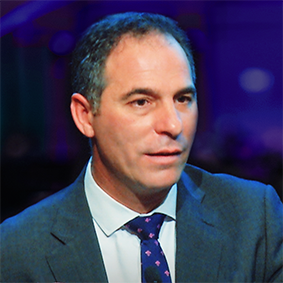
TEACHER IMPACT
All classroom teachers have a role in creating schools & learning environments where all children can learn and feel they belong.
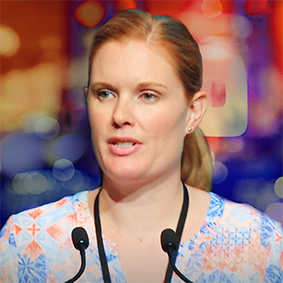
CHANGING MINDSETS
Whole school transformation requires courage, leadership & honest reflection to identify the need for change and set about making it happen.
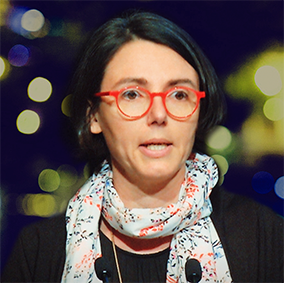
AUSTRALIAN EXPERIENCE
Exemplar inclusive educational practices are happening in Australia. See the possibility and potential of inclusion here and now.

HOW WE INCLUDE
Creating inclusive classrooms & schools starts with vision, policy, systems change, curriculum design and teaching practice.
NOW EXPLORE ACCESS READS
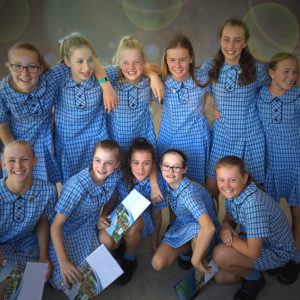
WHAT IS INCLUSION
The promotion, adoption and implementation of inclusive practices, which involves changing policies, practices and attitudes within schools.

HOW WE INCLUDE
Inclusive classrooms and schools embrace universal design as the foundation for cultivating inclusive attitudes and practices.

CHANGING MINDSETS
Bringing about change one mind at a time is integral to improving the lives of people with disability.

AUSTRALIAN EXPERIENCE
Exemplar inclusive educational practices are happening in Australia. See the possibility and potential of Inclusion here and now.

WHY INCLUDE
All children have the right to be included, to be represented in, to have access to and to receive high-quality education and supports.
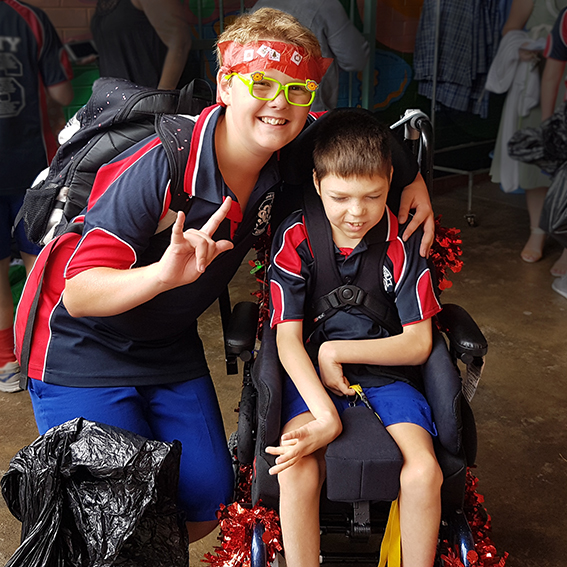
TEACHER IMPACT
All classroom teachers have a role in creating schools & learning environments where all children can learn and feel they belong.
A FAMILY ADVOCACY INITIATIVE
This site is edited and maintained by the Advocacy and Leadership Development team.
Image attributions: photos supplied and screenshots from Access Symposium videos.

